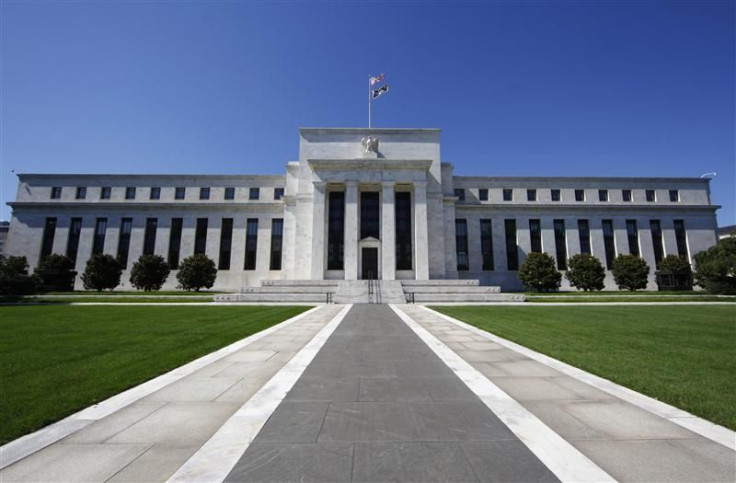Fed Won't Raise Interest Rates Till at Least Late 2014

(REUTERS) -- The U.S. Federal Reserve on Wednesday said it will not raise interest rates until at least late 2014, even later than investors expected, in an effort to support a sluggish economic recovery.
Without making major shifts to its outlook for the economy, the central bank described the unemployment rate as still elevated and said it expects inflation to remain at levels consistent with stable prices.
It depicted business investment as having slowed, dowgrading its assessment from the December meeting.
Economic conditions are likely to warrant exceptionally low levels for the federal funds rate at least through late 2014, the central bank said in a statement.
Richmond Fed President Jeffrey Lacker, an inflation hawk who rotated into a voting seat this year, dissented against the decision. He preferred to omit the description of the time period for ultra-low rates.
As part of an effort to provide more insight on its thinking to financial markets and the public, the Fed later on Wednesday will begin publishing individual policymakers' projections for the appropriate path of the benchmark federal funds rate. That release is scheduled for 2 p.m. (1900 GMT)
If the Fed can convince financial markets it will be on hold longer than they had anticipated, long-term interest rates could drop as investors price in the new information.
A significant contingent of the committee views this exercise not so much as a process improvement but more as an opportunity to ease again via the forward rate communications channel, Stephen Stanley, an economist at Pierpoint Securities, said ahead of the Fed's announcement.
There is also the possibility that officials will announce an explicit inflation target, perhaps a hard marker of 2 percent or a range of 2 percent or a bit below. The Fed has been debating a statement on its long-run goals, but whether one will be released on Wednesday is unclear.
While forecasters expect the U.S. economy grew at a 3 percent annual rate in the last three months of 2011, they look for growth of just around 2 percent this year.
Fed officials appear likely to bide their time in determining whether more monetary stimulus is needed. Many economists expect they will eventually decide on another spurt of Fed bond buying - probably one focused on mortgage debt.
In response to the deepest recession in generations, the Fed slashed the overnight federal funds rate to near zero in December 2008. It has also more than tripled the size of its balance sheet to around $2.9 trillion through two separate bond purchase programs.
The policy is credited with having prevented an even more devastating downturn, but it has been insufficient to bring unemployment down to levels considered normal during good economic times.
In December, the U.S. jobless rate stood at 8.5 percent, and some 13 million Americans were still actively looking for work but could not find it.
Analysts said the Fed's shift in communications will put an even greater emphasis on a post-meeting news conference by Fed Chairman Ben Bernanke set for 2:15 p.m. (1915 GMT).
The chairman is likely to remain non-committal to any additional policy easing, but he is likely to reinforce the Fed's commitment to 'review the size and composition of its securities holdings' and be 'prepared to adjust those holdings as appropriate,' said Millan Mulraine, senior macro strategist at TD Securities.
© Copyright Thomson Reuters 2024. All rights reserved.






















